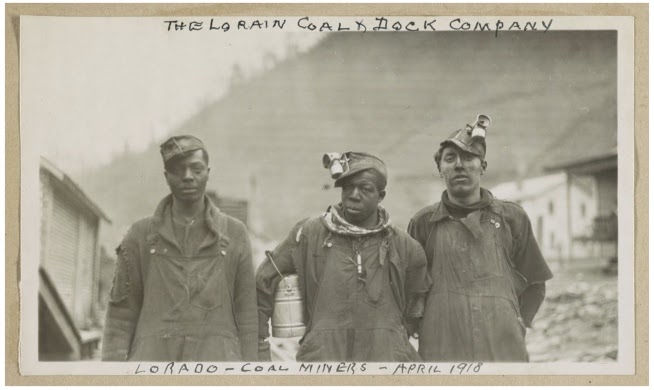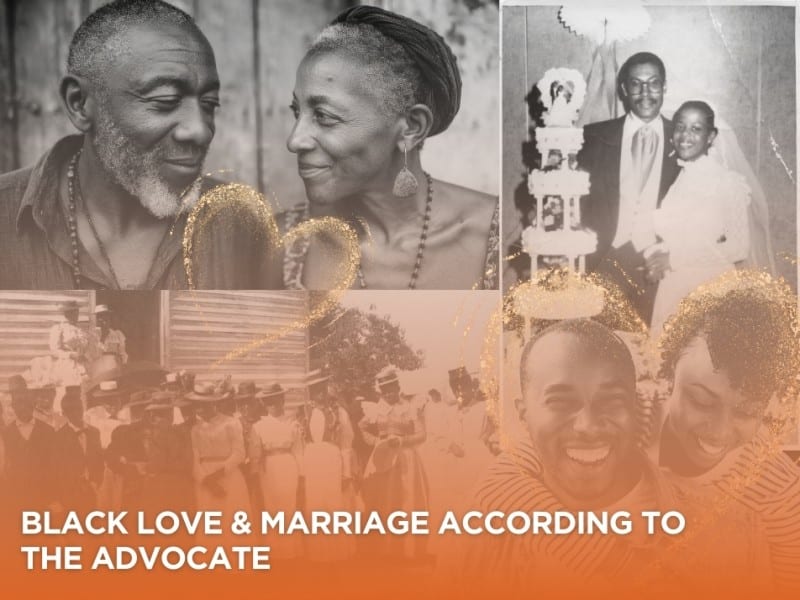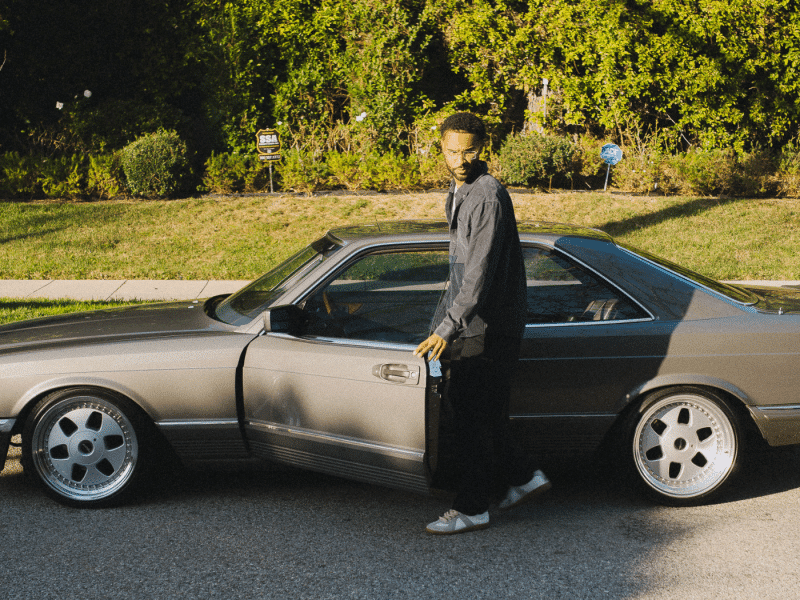‘Almost Heaven ’Til We Get There’
Black Miners and Blair Mountain

‘Almost Heaven ’Til We Get There’ Black Miners and Blair Mountain

Reprint from Medium (Sept. 2021)
The fight for interracial solidarity in words like red neck, Appalachian, and hillbilly.
That’s my book pitch.
I’ll begin.
I’m a sixth-generation West Virginian. My children are seventh-generation. My generational claim to Appalachia is subversive. It talks back to cavalier anti-Black stories of poor white redneck hillbillies and to the white people who claim an entire region as their own.
Whenever I witness white progressives reclaiming racial solidarity in words like “redneck” and “hillbilly” in the context of the suppressed Blair Mountain story, I am usually reminded they do not have to announce that they are white.
White writers claiming an Appalachian identity that mention Black contributions and experiences too often tokenize them to prove labor solidarity with a (*) Blair Mountain Battle interracial footnote.
I think we have the most to learn from the stories and details that offer insights into just how that moment of solidarity came to be — not the modern Instagram “after” photoshopped photo.
The Battle of Blair Mountain in 1921 — a century ago — was the largest labor uprising in United States history and the largest armed uprising since the American Civil War. The miners wore company-issued red bandanas and became known as the RedNeck Army.
Over 100 people were killed in Logan County during the Battle of Blair Mountain. Many more were arrested when 10,000 armed coal miners confronted 3,000 lawmen and scabs. Finally, after about one million rounds were fired, the battle ended, and the United States Army National Guard intervened by presidential order.
About 2,000 Black miners bravely took arms to confront the lawmen and scabs just a month after the Tulsa race riots. They marched for unionization and against the brutality inflicted upon the miners by the Baldwin-Felts detective agency, a police force the coal companies hired.
During this time, racial terror lynchings were at their highest in the southern part of West Virginia. Black miners were concentrated in a criminal legal system that disproportionately incarcerated them (still do) — and Black men were often sentenced to the death penalty.
The contribution of Black miners in the context of 1920’s life should lead any ode to the movement.

Three West Virginia Miners — Library of Congress
Acknowledging the incredible amount of negotiation for whites to accept Black miners into the United Mine Workers union is a start. Also, contextualizing how the push to include Blacks and immigrants was more an initiative of the rank and file within the coalfields than the union leadership.
The contribution of Black miners in the context of 1920’s life should lead any ode to the movement.
Over-emphasis on those moments of solidarity makes invisible the other story — t hat Black workers put solidarity above difference, knowing they could rarely count on white workers to do the same for them — and how that makes for labor and race relations today.
“White workers and employers coalesced…around notions of black inferiority,” writes Joe Trotter in his book “Coal, Class, and Color: Blacks in Southern West Virginia, 1915-32.”
Trotter’s book, now out of print, also quotes a Black union organizer — “The stakes were definitely higher, as the consequences were often more severe!” — while explaining that Black workers could not count on interracial class solidarity since white workers saw jobs in the mines as “theirs.”
“The stakes were definitely higher, as the consequences were often more severe! ”
Trotter tells the story about Black workers having to make weighty career decisions, conscious of the fact that the same white workers they joined during strikes could just as quickly join a “race war.”
Black workers didn’t just organize because they wanted to join white workers, but because they were fighting for their own lives and freedom.
I was thrilled to read a recent Twitter thread by Dr. Jessie Wilkerson. Her thread led to the important detail given by historian Lou Martin that Eli Kemp, an African American miner, was the first to die in the Battle of Blair Mountain.
Eli Kemp.

In my decade of curiosity about Blair Mountain, I never as much heard Eli Kemp’s name whispered.
Blair Mountain historian and author of “The Road to Blair Mountain,” Chuck Keeney, recently penned “Remembering the Stories of Those Who Gave Their Lives at Blair Mountain” and honored Mr. Kemp.
So, I’m challenging myself to find Eli Kemp’s name referenced in the centennial writings and to make certain his memory is always included.
Black miners like Eli Kemp were often degraded by white miners. We know they lived in the worst part of the coal camps, did the dirtiest and most dangerous jobs, and were even required to urinate in separate cans — inside the earth.
It is important to remember the truth of the region that it is not all white and that for Black families, it has never been comfortable.
Remembering that, Black people in West Virginia often die first.
In the century since the Battle Of Blair Mountain, I wonder, “Has anything changed in West Virginia?” West Virginia is living in the same company-caste system as it did 100 years ago. Citizens are still enduring America’s classism fueled by racist policies, rarely calling white supremacy racism as the cause.
I wish those interested in class solidarity would grapple with racism by deconstructing and challenging white settler capitalism and envisioning what a politics of liberation might look like if BIPOC folks lead?
It seems many progressives are more comfortable looking at the past labor solidarity in the early twentieth century as evidence that racism was somehow less prevalent.
It was not and is not.
The skewed perception of past labor solidarity is one of the more significant pains in my ass. The obsession with interracial labor solidarity often misses the more important story : they are always yoked to whiteness.
Those celebrating red neck and Appalachian often can’t or don’t connect how the idea of “Appalachia” is rooted in white supremacist ideas.
In the early twentieth century, white elites sought to condemn poor white people (trash, hillbillies, etc.) as part of their broader project to protect the purity of the white race (against Black migrants and immigrants) to explain class inequality and defend capitalism.
Poor white people threatened — and still do — white supremacy because their very existence questioned a white race’s dominance and the ideology of racial capitalism.
Author, activist, and Appalachian educator, Barbara Ellen Smith reminds us that white Appalachians often criticize the “pejorative” descriptions of white Appalachians, but fail to question the racist underpinnings of the entire concept of Appalachia.
Like the mine guards of the 1920s, a system that deputized violence to do the coal companies’ dirty work is expressed in 2021 in the Texas abortion vigilante and America’s police force that is still maiming and killing Black men and women.
Ending police brutality should be central to any 2021 revival of the RedNeck Army nostalgia. Yet, today, West Virginia prisons are disproportionately Black and have some of the most lethal prisons in the country . We don’t need to re-enact marches when we have so much to march for.
The 100-year difference is that during the coal boom beginning in the early twentieth century, the Black population surged, and along with that surge came political power. Today, the Black population is 65,000. As a result, more Black people have left West Virginia in the last 100 years than those who have stayed.
West Virginia appointed the first Black woman to a state legislature during the coal boom and passed anti-lynching laws. These progressive measures developed from the boom in the Black population.
West Virginia’s population decline is the largest in the U.S . Black people have been leaving the state for decades, with the onset of deindustrialization and mechanization of the mines in the 1950s. As a result, Black families were the first to lose industrial jobs.
I often ask people, “Know what all famous Black West Virginians have in common — from TD Jakes to Katherine Johnson?”
They left.
The Battle of Blair Mountain then and now to me is about police brutality.
The 1921 miners marched against the mine guard system.
West Virginia coal miners were FTP before NWA. But in 2021, I don’t hear enough of this connection, nor have I seen this shirt: ‘Real RedNecks Say Defund The Police! ‘
Solidarity starts with what Jennifer Wells of Community Change, one of our finest West Virginia organizers, said in a recent Washington Post interview about Black voters in West Virginia, “that it has to be multi-racial but that each part of the coalition, every part, has to feel their voice.”
She says that’s what’s been missing, a nd I agree.
“Every part” has to feel their voice as equal in 1921, 2021, or 2121.
The history of Blair Mountain sits in a fate that only future historians will tell if history remembers to tell us anything about Blair Mountain.
For years I claimed, I’m Appalachian or Affrilachian, a Black-Red Neck- Hillbilly.
But today, I pause.
I am a person from a place named Appalachia — stolen Shawnee, Mingwe, and Delaware land — navigating the next chapter of my American history that cannot center on whiteness or the illusion of solidarity as led and told by whiteness.
I am from a place named West Virginia, and I will not forget the stories of those that came before me.
And. I still live in the fight that battles “the company” and often have to fight the “white-miners” battling the company with me. https://www.youtube.com/watch?v=9P96FNFSil0
Learn more about Labor, Race and Solidarity with this amazing document by the West Virginia Center For Budget and Policy featuring the incredible work from the mind of Myya Helm.

If you appreciate BBG's work, please support us with a contribution of whatever you can afford.
Support our stories




